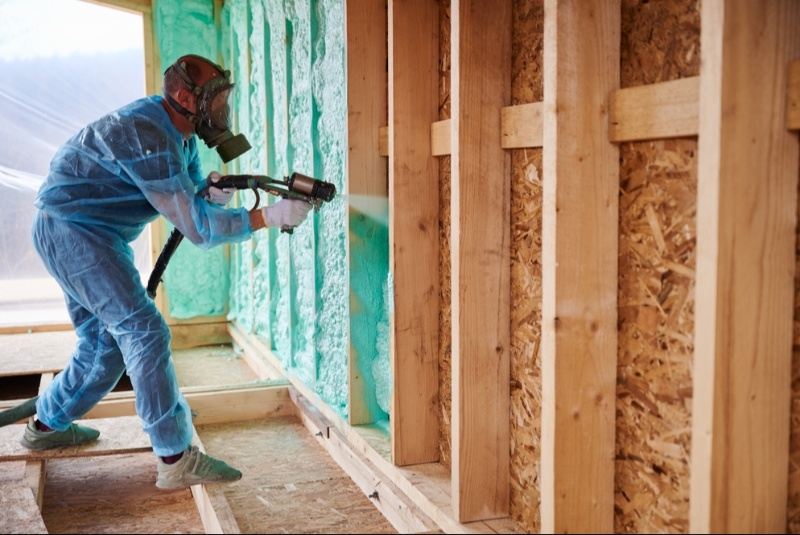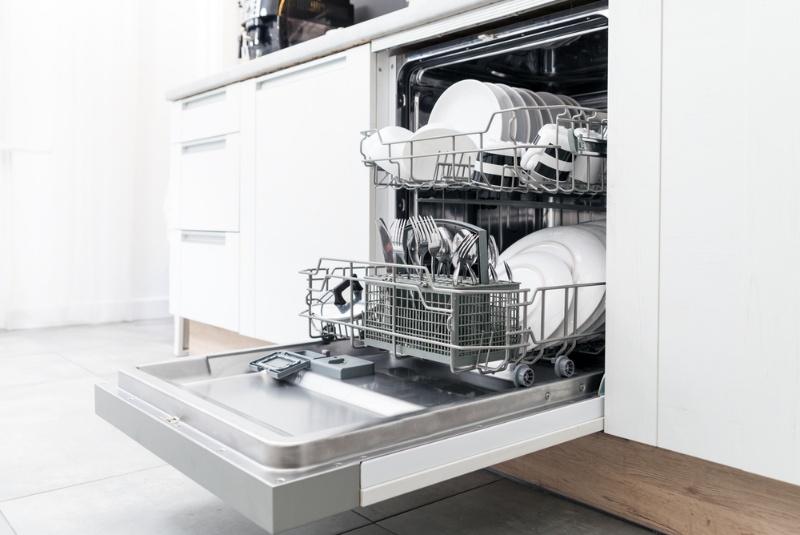Proper insulation is crucial for maintaining a comfortable and energy-efficient home. By selecting the right insulation products, you can reduce energy costs, improve indoor comfort, and contribute to environmental sustainability. This comprehensive guide provides essential tips and insights to help you choose the best home insulation products, ensuring your home remains cozy and efficient year-round.
Understanding Different Types of Insulation
There are several types of insulation, each with unique properties and suitable applications. Common types include fiberglass, cellulose, spray foam, rigid foam, and reflective insulation. Fiberglass insulation is widely used and cost-effective, providing good thermal performance. Cellulose insulation, made from recycled paper, is eco-friendly and effective at soundproofing. Spray foam offers excellent air sealing and high R-value per inch. Rigid foam is ideal for exterior walls and roofs, while reflective insulation works well in attics. Understanding these types helps you choose the right insulation for your specific needs, ensuring optimal performance and efficiency.
Evaluating R-Value
The R-value measures the insulation’s resistance to heat flow, with higher values indicating better thermal performance. The required R-value varies based on your climate, the part of the house being insulated, and local building codes. For example, attics in colder climates may need R-38 to R-60, while walls typically require R-13 to R-21. Evaluating R-value ensures you select insulation that meets your energy efficiency goals, providing adequate thermal resistance to keep your home comfortable.
Considering Installation Methods
Different insulation products require different installation methods, which can impact your choice. Batt and roll insulation is easy to install and suitable for DIY projects. Loose-fill insulation, like cellulose and fiberglass, requires specialized equipment for blowing into cavities. Spray foam insulation needs professional installation due to its application process and safety precautions. Rigid foam panels can be cut and fitted but may require additional sealing. Considering installation methods ensures you choose an insulation product that aligns with your skills and budget, facilitating a smooth installation process.
Assessing Moisture Resistance
Moisture resistance is an important factor in selecting insulation, especially in areas prone to humidity and water exposure. Some insulation materials, like closed-cell spray foam and rigid foam, offer excellent moisture resistance and act as a vapor barrier. Fiberglass and cellulose insulation can absorb moisture, reducing their effectiveness and potentially leading to mold growth. Assessing moisture resistance ensures your insulation performs well in all conditions, maintaining its thermal properties and protecting your home from moisture-related issues.
Evaluating Fire Resistance
Fire resistance is a critical safety consideration when choosing insulation. Some materials, like fiberglass and mineral wool, are non-combustible and provide excellent fire resistance. Others, like spray foam and cellulose, need to be treated with fire retardants. Local building codes often specify fire resistance requirements for different areas of the home. Evaluating fire resistance ensures your insulation contributes to the overall safety of your home, providing peace of mind and compliance with regulations.
Considering Environmental Impact
For environmentally conscious homeowners, the environmental impact of insulation materials is an important consideration. Look for products made from recycled materials, such as cellulose insulation, or those with a lower environmental footprint, like natural wool or cotton insulation. Consider the energy efficiency gains from high-performance insulation, which can reduce your home’s carbon footprint. Certifications like GREENGUARD or ENERGY STAR indicate products that meet high environmental and health standards. Considering environmental impact ensures you choose insulation that supports sustainability, contributing to a greener home and planet.
Checking for Soundproofing Capabilities
In addition to thermal insulation, some materials offer excellent soundproofing properties, reducing noise transmission between rooms and from outside. Cellulose, fiberglass, and mineral wool are particularly effective at soundproofing due to their dense and fibrous structure. If noise reduction is a priority, look for insulation products specifically designed for acoustic performance. Checking for soundproofing capabilities ensures your home remains quiet and peaceful, enhancing overall comfort.
Assessing Health and Safety Considerations
Health and safety considerations are crucial when selecting insulation. Some materials can release harmful chemicals or fibers during installation and over time. Look for insulation products that are free from formaldehyde, VOCs (volatile organic compounds), and other hazardous substances. Ensure proper ventilation during installation, especially for spray foam and blown-in insulation. Assessing health and safety considerations ensures your insulation promotes a healthy indoor environment, protecting the well-being of your family.

Evaluating Cost and Value
The cost of insulation varies widely depending on the material, thickness, and installation method. While it’s important to stay within your budget, consider the long-term value of the insulation. Higher initial costs for more efficient materials can result in significant energy savings over time. Additionally, some insulation products may qualify for rebates or tax incentives, reducing the overall cost. Evaluating cost and value ensures you make a cost-effective investment that provides long-term benefits, enhancing the energy efficiency and comfort of your home.
Reading Reviews and Seeking Recommendations
Customer reviews and expert recommendations offer valuable insights into the performance and reliability of different insulation products. Look for detailed reviews that discuss thermal performance, ease of installation, durability, and overall satisfaction. Professional reviews and consumer reports provide in-depth analysis and comparisons. Additionally, seek recommendations from friends, family, or online communities who have experience with home insulation. Reading reviews and seeking recommendations ensures you make an informed decision based on real-world experiences and expert opinions.
Consulting with Professionals
Consulting with insulation professionals can provide valuable guidance tailored to your specific needs and home conditions. Professionals can conduct an energy audit to determine the most effective insulation solutions for your home. They can also provide installation services, ensuring the insulation is applied correctly for optimal performance. Consulting with professionals ensures you receive expert advice and quality installation, maximizing the benefits of your insulation investment.
Understanding Local Building Codes
Local building codes often specify requirements for insulation in different areas of the home. These codes ensure adequate thermal resistance, fire safety, and moisture control. Understanding and complying with local building codes is essential when selecting and installing insulation. Check with your local building department or consult with a professional to ensure your insulation meets all regulatory requirements. Understanding local building codes ensures your insulation project is compliant, avoiding potential issues and ensuring safety and performance.
Exploring Warranty and Support
A good warranty and reliable customer support are important when investing in insulation products. Look for products that come with a manufacturer’s warranty, covering defects and performance issues. Check the duration and terms of the warranty to understand what is covered. Reliable customer support can assist with product selection, installation tips, and resolving any issues that arise. Exploring warranty and support ensures you have recourse if problems occur, providing confidence and protection for your investment.
Supporting Reputable Brands
Choosing insulation products from reputable brands enhances your confidence in their quality and performance. Established brands often invest in research and development, offering innovative solutions that improve energy efficiency and comfort. They also provide comprehensive product information, certifications, and support services. Supporting reputable brands ensures you invest in insulation that meets high standards, backed by reliable service and warranties.
Selecting the best home insulation products involves understanding different types, evaluating R-value, and considering installation methods. Assessing moisture resistance, fire resistance, and environmental impact are essential for optimal performance and safety. Checking for soundproofing capabilities, health and safety considerations, and evaluating cost and value further guide your decision. Reading reviews, consulting with professionals, understanding local building codes, and exploring warranty and support provide additional assurance. Supporting reputable brands ensures you invest in high-quality insulation. Use this guide to make an informed choice, enhancing the energy efficiency, comfort, and sustainability of your home.




